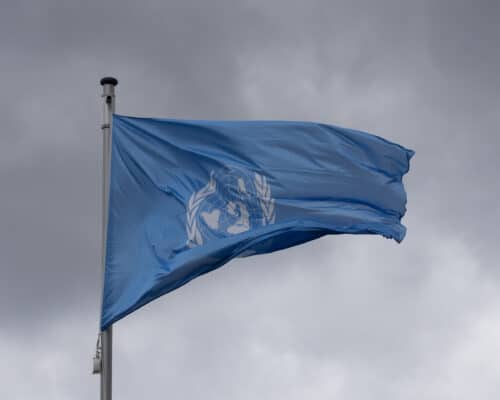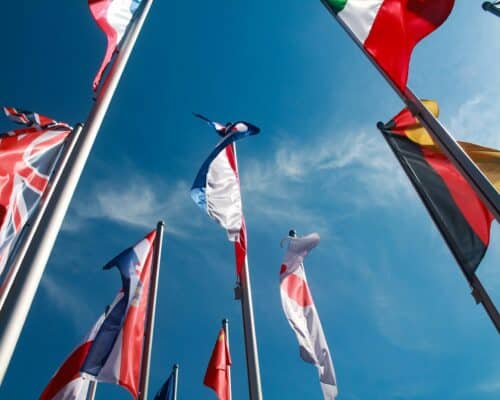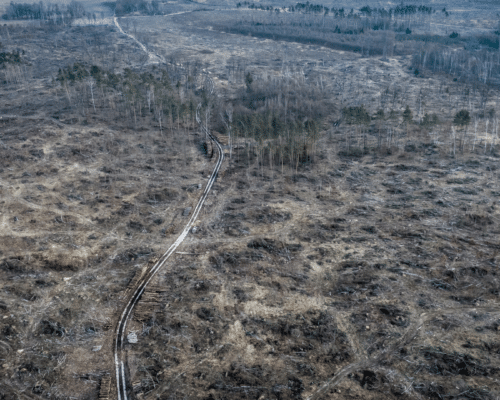K-pop Fans Urge K-pop Giant HYBE to Address Plastic Album Pollution Ahead of the UN’s 5th Plastic Treaty Talks in South Korea
Photo: Kpop4Planet
16 October 2024 – by Nurul Sarifah
The ‘Plastic Album Sins’ campaign, led by Kpop4Planet, held a compelling performance featuring puppets that symbolised fans breaking free from album marketing schemes. According to the group, K-pop entertainment companies use ‘dirty marketing’ tactics, such as random photocard systems, lottery draws for fan signs, and multiple album versions, to force fans into bulk purchases. HYBE, a leading K-pop entertainment company with 5.25 trillion KRW in total assets, is one of the corporations using these harmful marketing tactics.
In its 2023 Sustainability Report, despite HYBE’s “vision for Sustainable Entertainment,” its practices resulted in a massive 77.9% increase in plastic used for album production between 2022-2023. Furthermore, the Korea Institute of Corporate Governance and Sustainability (KCGS) rated HYBE’s ESG performance as the lowest in the environmental category among the four major entertainment companies.
A survey of 14,000 global and Korean fans by Kpop4Planet found that 36.5% of K-pop fans feel pressured to buy multiple albums to collect photocards – pictures of K-pop group members individually added to CD album packages, while 27.7% buy albums to increase their chances of attending exclusive events like fan signs with their favourite artists. This data underscores the need for a fundamental shift in K-pop marketing strategies.
As reported by Korean parliamentary sources in 2022, the amount of plastic waste generated by entertainment companies has increased 14-fold in the last six years. This might be the era of digital streaming, but physical K-pop album sales have surged over the last decade, with more than 116 million physical copies sold for the top 400 alone in 2023.
With the rapid growth of HYBE’s physical album sales in 2023, which reached 43.6 million, and the company’s significant impact on the global entertainment industry, HYBE has a social responsibility to strive toward ending plastic pollution, actively reducing greenhouse gas emissions, and advocating for the sustainable future of entertainment.
Since the No K-pop on a Dead Planet campaign initiated by Kpop4Planet in 2021, the industry has taken some tentative steps toward sustainability. However, these efforts, such as the use of FSC paper, digital albums, and dissolving photocards, have largely missed the mark, as they prioritise superficial solutions rather than addressing the root cause of excessive plastic waste.
This trend is not isolated to K-pop. Global music icons like Taylor Swift have faced criticism for similar practices, with fellow artist Billie Eilish vocally condemning the entertainment industry’s prioritisation of sales figures over environmental responsibility.
“The recent trend of selling multiple versions of the same album as a way of encouraging music fans to buy more than one copy is inconsistent with the industry’s sustainability goals,” said Kurt Langer, the Board of Directors of Music Sustainability Alliance. “Releasing dozens of variations of an album is not only harmful to the planet but also a form of economic segregation among fans, sending a message that the most loyal fans are those with the most money to spend.”
In August 2024, more than 12,000 K-pop fans in South Korea and worldwide united through an online campaign on Twitter, calling on the entertainment industry to end its practices that push fans to mass-purchase albums. Participants voted that using K-pop albums as lottery draws to enter the fan sign event (42.8%) is the worst marketing tactic from entertainment companies like HYBE.
“The efforts that have been done recently (using soy ink or other recycled materials for the albums) also show that companies do not understand what fans want. Entertainment companies should revise the ways fans can access fan signs events and develop other systems that would not encourage them to generate waste to complete their photocard collection,” said Mathieu Berbiguier, ENHYPEN fans and Visiting Assistant Professor in Korean Studies at Carnegie Mellon University, United States.
Following the online Twitter polling, the group sent an open letter to HYBE, addressing the fans’ voices and demanding the company stop marketing tactics that mislead fans into buying multiple copies of the same album. To date, the entertainment company has yet to respond.
“With the worsening climate crisis and the upcoming UN plastics meeting in Busan, we hope HYBE will ride the momentum and take responsibility to lead the change,” said Dayeon Lee, Kpop4Planet’s campaigner in South Korea. “The K-pop industry wouldn’t be what it is today without fans, so we hope HYBE will listen to the fans’ voices, and we won’t stop until we hear HYBE’s answer to our demand to end mislead marketing album tactics,” continued Lee.
Nurul Sarifah is the Campaign Team Leader for KPop4Planet. She became interested in environmental issues when she created a campaign at her university about beauty waste and learned more after she interned at Global NGOs 350.org Indonesia. She knows about youth, climate, and women empowerment issues, especially in Indonesia.
KPOP4PLANET is a global climate activist platform launched in March 2021 by K-pop fans. It is composed of fandoms across the world, including in South Korea and Indonesia.
Disclaimer: The views and opinions expressed in this article are those of the author and do not necessarily reflect the official policy or position of Energy Tracker Asia








